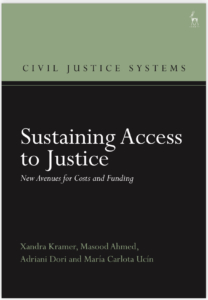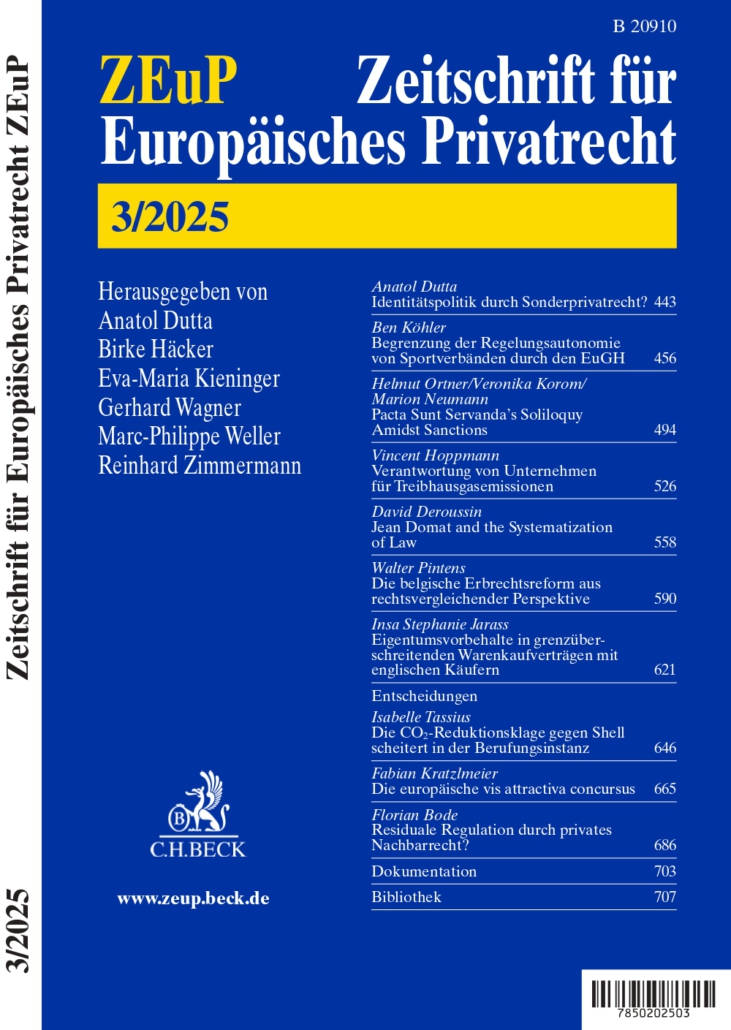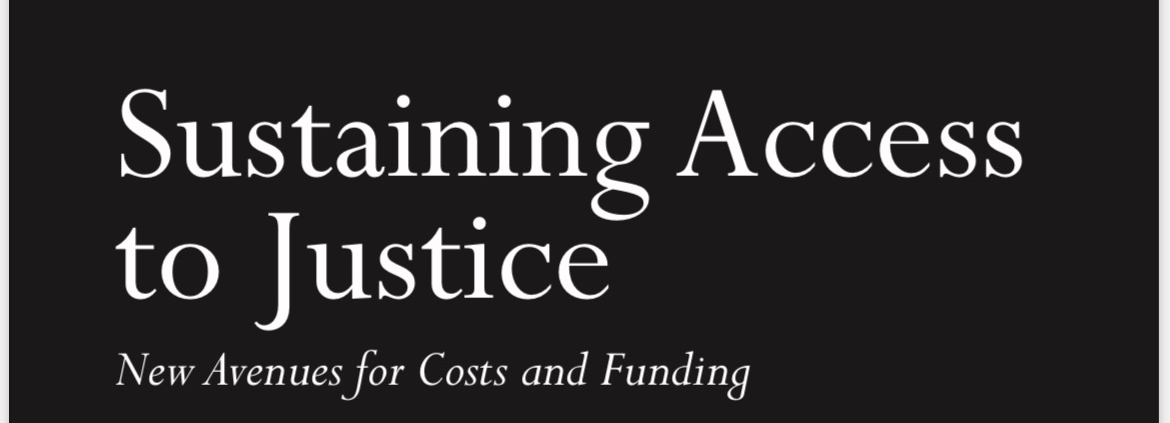Views
Tesseract: Don’t Over-React! The High Court of Australia, Proportionate Liability, Arbitration, and Private International Law
By Dr Benjamin Hayward
Associate Professor, Department of Business Law and Taxation, Monash Business School
X: @LawGuyPI, @MonashITICL
On 7 August 2024, the High Court of Australia handed down its long-awaited decision in Tesseract International Pty Ltd v Pascale Construction Pty Ltd [2024] HCA 24. The dispute arose out of a domestic commercial arbitration seated in South Australia, where the Commercial Arbitration Act 2011 (SA) is the relevant lex arbitri. That Act is a domestically focused adaptation of the UNCITRAL Model Law on International Commercial Arbitration (with its 2006 amendments).
The respondent to the arbitration sought to rely upon proportionate liability legislation found in the Law Reform (Contributory Negligence and Apportionment of Liability) Act 2001 (SA) and in the Competition and Consumer Act 2010 (Cth). The High Court was asked to determine whether those proportionate liability regimes could be applied in the arbitration. A very practical difficulty arose here, reflected in Steward J noting (in dissent) that the High Court was ‘faced with an invidious choice’: see [228]. Were the proportionate liability laws not to apply in the arbitration, the respondent might find themselves liable for 100% of the applicant’s loss, when they would not be liable to that same extent in court proceedings applying the same body of South Australian law. But were the proportionate liability laws to apply, the applicant might find themselves able to recover only a portion of their loss in the arbitration, and might then have to then pursue court proceedings against another third party wrongdoer to recover the rest: given that joinder is not possible in arbitration without consent. Read more
First Thai Monetary Judgment Enforced in China, Highlighting Presumptive Reciprocity in China-ASEAN Region
This post is kindly provided by Dr. Meng Yu, lecturer at China University of Political Science and Law, and co-founder of China Justice Observer.
Key Takeaways:
- In June 2024, the China-ASEAN Free Trade Area Nanning International Commercial Tribunal under the Nanning Railway Transportation Intermediate Court in Guangxi ruled to recognize and enforce a Thai monetary judgment (Guangxi Nanning China Travel Service, Ltd. v. Orient Thai Airlines Co., Ltd. (2023) Gui 71 Xie Wai Ren No. 1).
- Apart from being the first case of enforcing Thai monetary judgments in China, it is also the first publicly reported case confirming a reciprocal relationship based on “presumptive reciprocity”.
- The Chinese court’s confirmation that “presumptive reciprocity”, as outlined in the Nanning Statement, is a form of mutual consensus between China and ASEAN countries helps to promote the circulation of judgments within the China-ASEAN region.
News
New book and webinar Sustaining Access to Justice – 5 September
 In June the volume “Sustaining Access to Justice: New Avenues for Costs and Funding” was published in the Civil Justice Systems series of Hart Publishing (2025). The book is edited by Xandra Kramer, Masood Ahmed, Adriani Dori and Maria Carlota Ucín. This edited volume results from a conference held at Erasmus University Rotterdam, as part of the Vici project on Affordable Access to Justice funded by the Dutch Research Council (NWO). It contains contributions on access to justice themes, in particular costs and funding of litigation, by key experts across Europe, Latin America and Asia. More information, including the table of contents is available at the Bloomsbury website here.
In June the volume “Sustaining Access to Justice: New Avenues for Costs and Funding” was published in the Civil Justice Systems series of Hart Publishing (2025). The book is edited by Xandra Kramer, Masood Ahmed, Adriani Dori and Maria Carlota Ucín. This edited volume results from a conference held at Erasmus University Rotterdam, as part of the Vici project on Affordable Access to Justice funded by the Dutch Research Council (NWO). It contains contributions on access to justice themes, in particular costs and funding of litigation, by key experts across Europe, Latin America and Asia. More information, including the table of contents is available at the Bloomsbury website here.
The book explores the dynamic landscape of legal costs and financing from three perspectives: regulatory frameworks in public and private funding; new trends and challenges in contemporary legal financing; and the transformative potential of alternative dispute resolution (ADR) and online dispute resolution (ODR) procedures to streamline civil justice processes and expand access to justice.
By addressing the intersectionality of legal, economic, political, market and social dynamics, the book aims to provide an encompassing understanding of the inherent complexity of costs and funding of litigation, and their implications for access to justice.
A seminar on the ocassion of launching the book will take place on 5 September 2025, from 10-12.15 CET.
Program
10.00 Introduction Xandra Kramer, Masood Ahmed, Carlota Ucin, Adriani Dori
10.15 Jacek Garstka (European Commission) – EC perspective on the access to justice and the role of litigation funding
10.25 Maria Jose Azar-Baud – Trends in Funding of Collective Litigation
10.35 Alexandre Biard – Enforcing Consumer Rights: Costs and Funding
10.50 Discussion
11.10 Eduardo Silva de Freitas – Justice for a Price: Funders, Fees and the RAD
11.20 Marcel Wegmüller – ESG and Litigation Funding: A Practitioner’s View
11.35 Adrian Cordina – Regulating Litigation Funding: A Law and Economics View
11.45 Stefaan Voet/Masood Ahmed – Beyond Litigation: Cost-Effective Strategies for ADR and ODR
12.00 Discussion and Conclusion
More information and (free) registration here.
Webinar: Beyond State Borders, Beyond the Situs Rule? Private International Law Issues of Resource Extraction in Antarctica, the Deep Seabed, and Outer Space
The Aberdeen Centre for Private International Law & Transnational Governance (CPILTG) will be hosting a webinar by Professor Caroline Rapatz (University of Kiel, Germany) on 20 August 2025, 11am – 12pm noon.
More information is available here.
ZEuP – Zeitschrift für Europäisches Privatrecht 3/2025
A new issue of ZEuP – Zeitschrift für Europäisches Privatrecht is now available and includes contributions on EU private law, comparative law and legal history, legal unification, private international law, and individual European private law regimes. The full table of content can be accessed here: https://rsw.beck.de/zeitschriften/zeup. 
The following contributions might be of particular interest for the readers of this blog:
- Pacta Sunt Servanda’s Soliloquy Amidst Sanctions: The Impact of EU Sanctions on Contractual Performance in Arbitration Proceedings
Helmut Ortner, Veronika Korom and Marion on the Impact of EU Sanctions on Contractual Performance in Arbitration Proceedings: EU sanctions against Russia and Russia’s countermeasures have significantly disrupted trade, supply chains, and contractual relations, sparking disputes frequently resolved through arbitration. European legal systems provide a range of mechanisms—including force majeure, impossibility, frustration, and hardship—to address sanctions-related performance impediments. Despite doctrinal divergences, these frameworks tend to converge on practical outcomes. To mitigate risks and increase legal certainty, parties are well-advised to incorporate tailored clauses in their contracts. - Eigentumsvorbehalte in grenzüberschreitenden Warenkaufverträgen mit englischen Käufern
Insa Stephanie Jarass on retention of title clauses in contracts with English buyers: In PST Energy 7 Shipping LLC v OW Bunker Malta Ltd (The Res Cogitans) [2016] UKSC 23, the Supreme Court held that the Sale of Goods Act 1979 no longer applies to certain con-tracts containing retention of title clauses which had previously always been categorised as contracts for the sale of goods. This article analyses the legal implications of this decision for contracts for the supply of goods to Eng-land. In addition to the legal uncertainties that have always surrounded the validity in rem of retention of title clauses under English law, the decision adds a new level of complex-ity at the contractual level that requires par-ticular attention when drafting international contracts. - Die europäische vis attractiva concursus – Altbekanntes, Neues und Ungeklärtes zu Reichweite, Kompetenzkonflikten und materieller Sperrwirkung
Fabian Kratzlmeier comments on the decision by the ECJ in C-394/22, addressing the law applicable in the context of insolvency proceedings.



